As covered previously here on GOL, Valve added a refund system to Steam earlier this month.
This has been a very prominent point of contention for a long time, which has caused problems for developers (who had no way to remove a game from a Steam user's account if they did want to offer a refund) and users (who would often be told that Steam doesn't give refunds when legitimate issues warranted some kind of compensation) alike.
At the time of introduction, the Steam refund policy is very broad. Users are entitled to an unconditional refund within 14 days providing they have not played more than 2 hours' worth. The policy states that Valve will be keeping an eye out for abusers and may revoke their right to a Steam refund (users with VAC bans also lose the right to a refund for that game).
Whilst the refund system is definitely a smooth, accessible experience, it is a negative proposition (one I hope that most readers will be fortunate enough to avoid), and for this reason I thought I'd go through the motions and give an idea of what's involved. Note that some of the screenshots shown were taken after I'd been refunded and re-purchased the game, accounting for the discrepancy in hours played, achievements and dates.
Since I didn't want to inconvenience any developers through this, I chose a game I was interested in and could justify re-purchasing after getting a refund. In this case, that game was a four pack of BlazeRush, an isometric combat racer from Targem Games (now known as Star Gem Inc, the company behind Star Conflict - see here for a Star Conflict related interview featured previously on GOL). I'd not played BlazeRush before and hadn't previously had contact with any of the developers that I'm aware of.
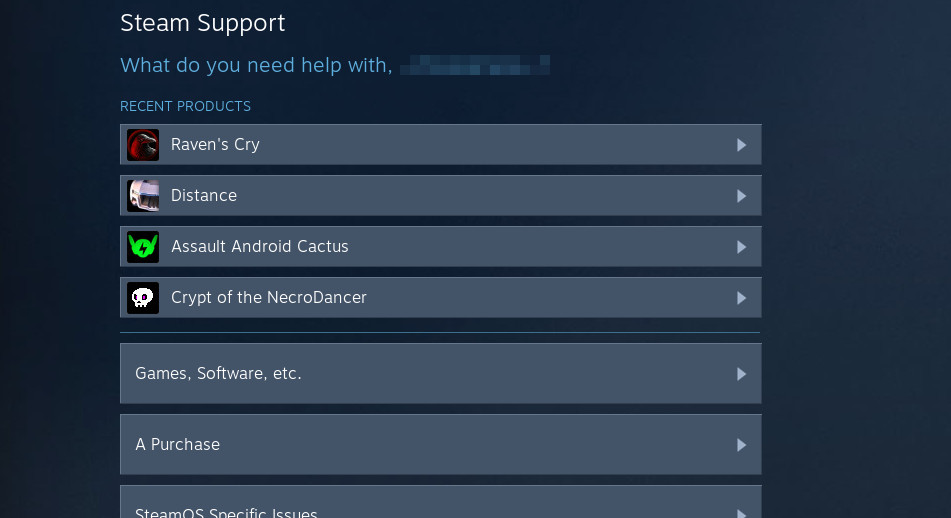
I played the game long enough for a Steam trading card to drop (12 minutes), wrote a review and then headed over to the new Steam support site (which seems to be replacing portions of the existing Steam support site at support.steampowered.com). This new support site presents several options for getting assistance in a more streamlined manner than the old support site, and allows you to access the issue ticketing system, search the Steam knowledge base and look for game specific help.

At the top of the support page is a list of games you have recently played, which you can click on to see options for addressing problems. The options shown will depend on several factors. It seems like "It's not what I expected" and "Gameplay or technical issue" will always display. Other options seem context dependent, for example, when a game doesn't support all of Steam's platforms, a "It doesn't work on my operating system" option appears, or when the price of a game has changed, a "It's now available cheaper" option will be displayed (it's worth noting that the refund policy explicitly states that refunding a game to take advantage of a price drop is not considered to be abuse).
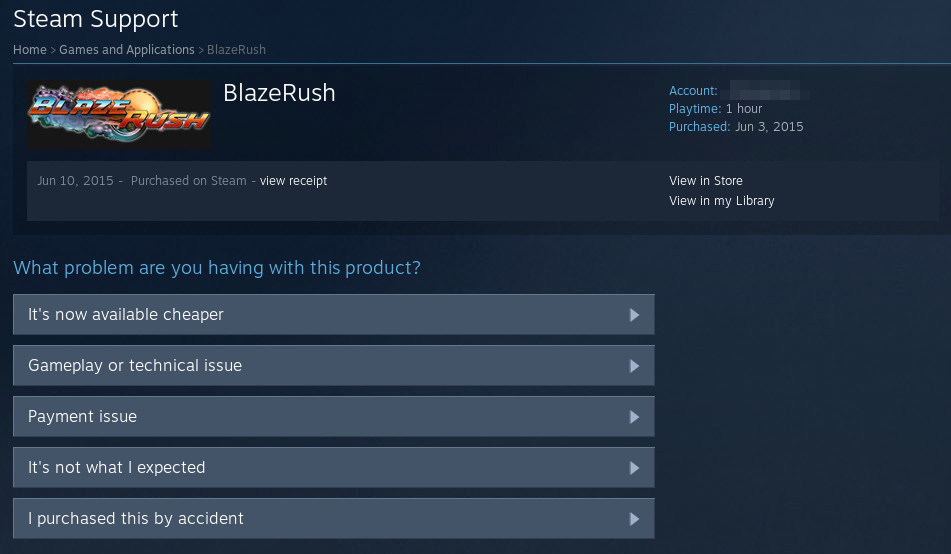
Clicking "Gameplay or technical issue" will open a support portal page for that title (a game not in this list can be found by clicking the "Games, Software, etc." option and searching from there). This page shows your purchase date, number of hours played, support contact details for developers (including contact email addresses), system requirements, features, and a link to the community discussion forums and community created guides. Hiding off to the right on this page is a "Request a refund" button.
If a "Payment issue" option appears, you will be presented with options that lead to Steam knowledge base articles covering double charges, to the Steam ticket lodging, and onward to the refund processing form.
So far as I've been able to tell, the following options will give an opportunity to go to the refund processing form from any position within the menu system:
* "I purchased this by accident"
* "It's not what I expected"
* "It's now available cheaper"
* "It doesn't work on my operating system"
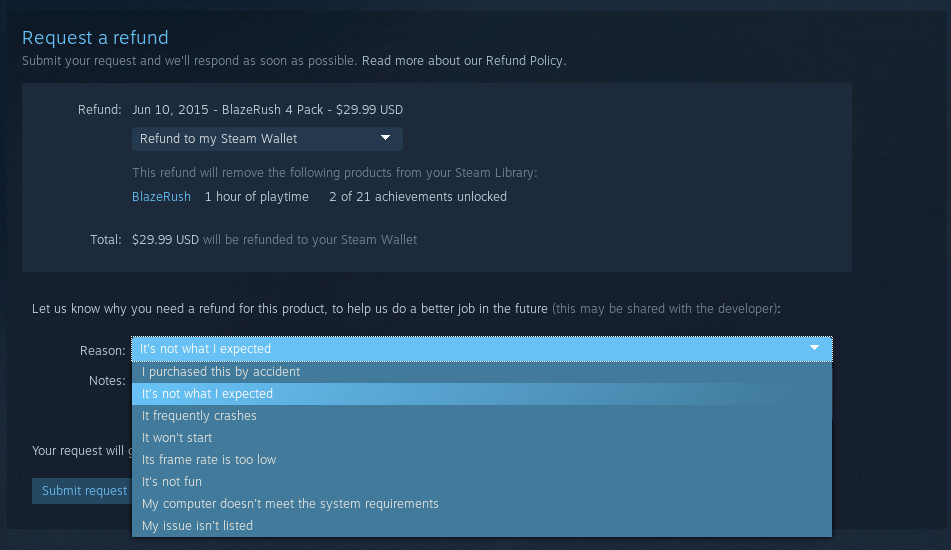
The refund form itself gives you options to refund the amount to your Steam wallet or other payment method if applicable and to select a reason for your refund request. Purchases which have been partially paid for via Steam wallet funds can only be refunded to your Steam wallet.
In addition to selecting one of these options, you may also include some notes. These end up being visible to developers who choose to look at them.
If the game you're attempting to refund was received as a gift, the refund form is replaced with a "Allow the original purchaser of this gift to request a refund" checkbox. Upon checking this, a notice appears saying that you can let the original gift purchaser know that they can now request a refund.

After clicking the "Submit request" button, you will receive an email notification indicating that the refund request has been received.
The refund turnaround time seems to vary. This refund took one week and 14 hours to be approved, and then the amount remained pending in my Steam wallet for two more days. I've spoken to other Steam users who have had refunds processed within 48 hours. I stated in my notes that I was requesting a refund so that I could write about the process. It's possible that my request was flagged for extra attention for this (it's also possible my refund counts as abuse and may limit my ability to request refunds in the future).

When the refund is approved, you'll receive a confirmation email. My email stated that funds would be received within 7 days. The game left my Steam library (although the files weren't removed from my computer), and the gift copies left my Steam inventory.
All up, the process is fairly straightforward and doesn't take a lot of time. I was able to retain my Steam trading card and the review remained active, which raises some interesting discussion points. Personally, I'm comfortable with this - if somebody is to refund a game with legitimate concerns, then their review may contain worthwhile information (though, as with all reviews, it's best to take the opinions opinions with a grain of salt until you know where the author's tastes and perspectives lie in comparison to your own). That said, Steam reviews could definitely benefit from having more clear and prominent indicators of whether an author actually owns the game at hand or not. With regards to trading cards, developers get a cut of marketplace transactions, so it's a way for them to potentially see some small revenue from refunded games.
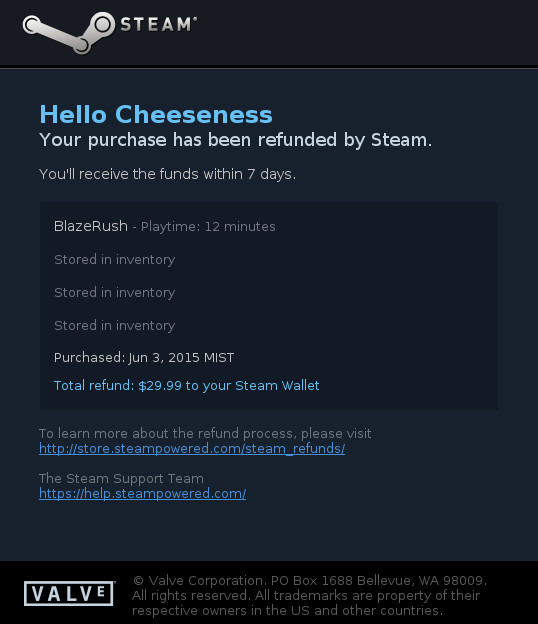
The refund system seems to have been broadly well received, though some developers have been raising concerns with regards to the specifics of the policy. In particular, some developers of short games with playtimes less than the guaranteed two hour refund window are worried that the refund policy allows their games to be experienced in full and then refunded. Others seem concerned with the possible impact on Early Access games (which often aren't representative of the final game experience and purchases early in development may not be eligible for refunds by the time that final experience is discernable), DRM free titles (which could be copied and then refunded) and more general disagreements on whether or not merely disliking a game should be enough to warrant a refund or whether people who purchased full price should be entitled to refund after a price drop and re-purchase (both of which are specifically noted as being acceptable by Valve). Developers who might like to offer refunds that Valve would deny also don't currently have any options that would result in the game being removed from the player's library.
The lack of lead time on the announcement of the refund policy has to have made things awkward for any developers who had just launched sales and were expecting past full price purchases to be reliable revenue. If something is objectively wrong with the implementation of the refund system, it's that.
Many developers have also been sharing initial stats and attempting to interpret an impact from them, but with less than two weeks to observe the outcome (combined with other factors like the Steam sale and with the likelihood of people experimenting with the refund system), there just isn't enough solid data to be drawing conclusions about what effect refunds may be having on consumer behaviour. This stuff may be evidence, but it's anecdotal and not strong enough to be making decisions based on. Valve has also since exposed some initial data to developers to help with interpreting the impact of refunds and apparently have plans to expand this over time to give more insight.
To highlight how data might be misinterpreted, Caspain of long-time Linux supporting developer Puppy Games shared some initial sales data which showed a massive downturn in sales following the refund announcement. In spite of the initial obvious conclusion (which many news sites seem to have fixated on), Cas' own analysis reveals that a major contributing factor to the drop in sales is from coupons being retired around the same time (apparently a majority of their sales came from 90% off coupons, meaning that the number of full paying purchases doesn't seem to be as effected).
Another thing that has become evident is that some refund requests for games with more than 2 hours' worth of playtime and/or outside of the two week period. Octodad developer Kevin Geisler has reported that 80% of their refunds so far have been from periods between 2 and 5 months ago, and others for purchases that may have been up to 6 months old. With prominent numbers of refunds being offered outside of the two week window, budgeting and making decisions based on sales becomes increasingly difficult.
Valve themselves are assuring developers that they are being diligent with regards to identifying refund abuse and are paying particular attention to DRM free titles to identify whether they becomes specific targets for refund behaviour. They also apparently, for now at least, have people reviewing every refund request, though they are also asking developers who see what they feel is abuse to report it.
With the Steam sale clouding things at the moment by changing normal purchasing habits, it's going to be some time before the true outcomes of the refund policy are observable.
I'd speculate that Valve will tune the system to allow it to cater better to different styles of games rather than have a one-size-fits-all policy. I suspect it may also have an impact on the kinds of discounts that developers are comfortable offering now that discounted sales (which will inherently attract people who care less about a game than someone willing to pay full price) don't offer the same kind of guaranteed revenue, which is something that could have significant impact on current dominant purchasing behaviours which seem to be very bundle and discount focused.
For now, at least, Valve have made a significant step forward in balancing a system that was previously stacked against customers. If it's being monitored and moderated as Valve claim, then the dangers of abuse seem low, and though the number of refunds are likely to be abnormally high at first (likely thanks to both the feature being new and the Steam Summer Sale), I'm hopeful that when the dust settles and the kinks are ironed out, this will ultimately lead to more positive player communities and creator/customer relationships.
This has been a very prominent point of contention for a long time, which has caused problems for developers (who had no way to remove a game from a Steam user's account if they did want to offer a refund) and users (who would often be told that Steam doesn't give refunds when legitimate issues warranted some kind of compensation) alike.
At the time of introduction, the Steam refund policy is very broad. Users are entitled to an unconditional refund within 14 days providing they have not played more than 2 hours' worth. The policy states that Valve will be keeping an eye out for abusers and may revoke their right to a Steam refund (users with VAC bans also lose the right to a refund for that game).
Whilst the refund system is definitely a smooth, accessible experience, it is a negative proposition (one I hope that most readers will be fortunate enough to avoid), and for this reason I thought I'd go through the motions and give an idea of what's involved. Note that some of the screenshots shown were taken after I'd been refunded and re-purchased the game, accounting for the discrepancy in hours played, achievements and dates.
Since I didn't want to inconvenience any developers through this, I chose a game I was interested in and could justify re-purchasing after getting a refund. In this case, that game was a four pack of BlazeRush, an isometric combat racer from Targem Games (now known as Star Gem Inc, the company behind Star Conflict - see here for a Star Conflict related interview featured previously on GOL). I'd not played BlazeRush before and hadn't previously had contact with any of the developers that I'm aware of.

I played the game long enough for a Steam trading card to drop (12 minutes), wrote a review and then headed over to the new Steam support site (which seems to be replacing portions of the existing Steam support site at support.steampowered.com). This new support site presents several options for getting assistance in a more streamlined manner than the old support site, and allows you to access the issue ticketing system, search the Steam knowledge base and look for game specific help.

At the top of the support page is a list of games you have recently played, which you can click on to see options for addressing problems. The options shown will depend on several factors. It seems like "It's not what I expected" and "Gameplay or technical issue" will always display. Other options seem context dependent, for example, when a game doesn't support all of Steam's platforms, a "It doesn't work on my operating system" option appears, or when the price of a game has changed, a "It's now available cheaper" option will be displayed (it's worth noting that the refund policy explicitly states that refunding a game to take advantage of a price drop is not considered to be abuse).

Clicking "Gameplay or technical issue" will open a support portal page for that title (a game not in this list can be found by clicking the "Games, Software, etc." option and searching from there). This page shows your purchase date, number of hours played, support contact details for developers (including contact email addresses), system requirements, features, and a link to the community discussion forums and community created guides. Hiding off to the right on this page is a "Request a refund" button.
If a "Payment issue" option appears, you will be presented with options that lead to Steam knowledge base articles covering double charges, to the Steam ticket lodging, and onward to the refund processing form.
So far as I've been able to tell, the following options will give an opportunity to go to the refund processing form from any position within the menu system:
* "I purchased this by accident"
* "It's not what I expected"
* "It's now available cheaper"
* "It doesn't work on my operating system"

The refund form itself gives you options to refund the amount to your Steam wallet or other payment method if applicable and to select a reason for your refund request. Purchases which have been partially paid for via Steam wallet funds can only be refunded to your Steam wallet.
In addition to selecting one of these options, you may also include some notes. These end up being visible to developers who choose to look at them.
If the game you're attempting to refund was received as a gift, the refund form is replaced with a "Allow the original purchaser of this gift to request a refund" checkbox. Upon checking this, a notice appears saying that you can let the original gift purchaser know that they can now request a refund.

After clicking the "Submit request" button, you will receive an email notification indicating that the refund request has been received.
The refund turnaround time seems to vary. This refund took one week and 14 hours to be approved, and then the amount remained pending in my Steam wallet for two more days. I've spoken to other Steam users who have had refunds processed within 48 hours. I stated in my notes that I was requesting a refund so that I could write about the process. It's possible that my request was flagged for extra attention for this (it's also possible my refund counts as abuse and may limit my ability to request refunds in the future).

When the refund is approved, you'll receive a confirmation email. My email stated that funds would be received within 7 days. The game left my Steam library (although the files weren't removed from my computer), and the gift copies left my Steam inventory.
All up, the process is fairly straightforward and doesn't take a lot of time. I was able to retain my Steam trading card and the review remained active, which raises some interesting discussion points. Personally, I'm comfortable with this - if somebody is to refund a game with legitimate concerns, then their review may contain worthwhile information (though, as with all reviews, it's best to take the opinions opinions with a grain of salt until you know where the author's tastes and perspectives lie in comparison to your own). That said, Steam reviews could definitely benefit from having more clear and prominent indicators of whether an author actually owns the game at hand or not. With regards to trading cards, developers get a cut of marketplace transactions, so it's a way for them to potentially see some small revenue from refunded games.

The refund system seems to have been broadly well received, though some developers have been raising concerns with regards to the specifics of the policy. In particular, some developers of short games with playtimes less than the guaranteed two hour refund window are worried that the refund policy allows their games to be experienced in full and then refunded. Others seem concerned with the possible impact on Early Access games (which often aren't representative of the final game experience and purchases early in development may not be eligible for refunds by the time that final experience is discernable), DRM free titles (which could be copied and then refunded) and more general disagreements on whether or not merely disliking a game should be enough to warrant a refund or whether people who purchased full price should be entitled to refund after a price drop and re-purchase (both of which are specifically noted as being acceptable by Valve). Developers who might like to offer refunds that Valve would deny also don't currently have any options that would result in the game being removed from the player's library.
The lack of lead time on the announcement of the refund policy has to have made things awkward for any developers who had just launched sales and were expecting past full price purchases to be reliable revenue. If something is objectively wrong with the implementation of the refund system, it's that.
Many developers have also been sharing initial stats and attempting to interpret an impact from them, but with less than two weeks to observe the outcome (combined with other factors like the Steam sale and with the likelihood of people experimenting with the refund system), there just isn't enough solid data to be drawing conclusions about what effect refunds may be having on consumer behaviour. This stuff may be evidence, but it's anecdotal and not strong enough to be making decisions based on. Valve has also since exposed some initial data to developers to help with interpreting the impact of refunds and apparently have plans to expand this over time to give more insight.
To highlight how data might be misinterpreted, Caspain of long-time Linux supporting developer Puppy Games shared some initial sales data which showed a massive downturn in sales following the refund announcement. In spite of the initial obvious conclusion (which many news sites seem to have fixated on), Cas' own analysis reveals that a major contributing factor to the drop in sales is from coupons being retired around the same time (apparently a majority of their sales came from 90% off coupons, meaning that the number of full paying purchases doesn't seem to be as effected).
Another thing that has become evident is that some refund requests for games with more than 2 hours' worth of playtime and/or outside of the two week period. Octodad developer Kevin Geisler has reported that 80% of their refunds so far have been from periods between 2 and 5 months ago, and others for purchases that may have been up to 6 months old. With prominent numbers of refunds being offered outside of the two week window, budgeting and making decisions based on sales becomes increasingly difficult.
Valve themselves are assuring developers that they are being diligent with regards to identifying refund abuse and are paying particular attention to DRM free titles to identify whether they becomes specific targets for refund behaviour. They also apparently, for now at least, have people reviewing every refund request, though they are also asking developers who see what they feel is abuse to report it.
With the Steam sale clouding things at the moment by changing normal purchasing habits, it's going to be some time before the true outcomes of the refund policy are observable.
I'd speculate that Valve will tune the system to allow it to cater better to different styles of games rather than have a one-size-fits-all policy. I suspect it may also have an impact on the kinds of discounts that developers are comfortable offering now that discounted sales (which will inherently attract people who care less about a game than someone willing to pay full price) don't offer the same kind of guaranteed revenue, which is something that could have significant impact on current dominant purchasing behaviours which seem to be very bundle and discount focused.
For now, at least, Valve have made a significant step forward in balancing a system that was previously stacked against customers. If it's being monitored and moderated as Valve claim, then the dangers of abuse seem low, and though the number of refunds are likely to be abnormally high at first (likely thanks to both the feature being new and the Steam Summer Sale), I'm hopeful that when the dust settles and the kinks are ironed out, this will ultimately lead to more positive player communities and creator/customer relationships.
Some you may have missed, popular articles from the last month:
All posts need to follow our rules. For users logged in: please hit the Report Flag icon on any post that breaks the rules or contains illegal / harmful content. Guest readers can email us for any issues.
Interesting stuff about it from developers, commented by TotalBiscuit: https://www.youtube.com/watch?v=cPUToCNq-iA
One thing he mentions is that you only need one copy of a game to initiate an avalanche of illegal copies, and that it doesn't really matter if that one is refunded or not.
One thing he mentions is that you only need one copy of a game to initiate an avalanche of illegal copies, and that it doesn't really matter if that one is refunded or not.
0 Likes
I just submitted refund requests for crappy windows games that I never played. I should get like $85 back that I can spend on linux games.
0 Likes
Thank you for the write up.
0 Likes
I just submitted refund requests for crappy windows games that I never played. I should get like $85 back that I can spend on linux games.
They said the games must be no older than 14 days, but... good luck!
1 Likes
Personally, I can't find myself using the refund policy much (if at all), but still needs fine tuning for specific OS cases as I mention [here](http://www.reddit.com/r/Cynicalbrit/comments/396fbo/devs_speak_out_on_steam_refunds/cs0t5zl). It's good and should be like this, but my habits of rewarding a developer for a port still haven't waned.
Not sure what you're implying, but he also mentions it would happen regardless of Steam refunds (which I agree on this subject). This is for the case for DRM-free builds that aren't removed (which are usually sold outside of Steam as well, such as GOG and what have you, which could ALSO be pirated anyway). Point is, pirates are still going to pirate, no more, no less.
Interesting stuff about it from developers, commented by TotalBiscuit: https://www.youtube.com/watch?v=cPUToCNq-iA
One thing he mentions is that you only need one copy of a game to initiate an avalanche of illegal copies, and that it doesn't really matter if that one is refunded or not.
Not sure what you're implying, but he also mentions it would happen regardless of Steam refunds (which I agree on this subject). This is for the case for DRM-free builds that aren't removed (which are usually sold outside of Steam as well, such as GOG and what have you, which could ALSO be pirated anyway). Point is, pirates are still going to pirate, no more, no less.
3 Likes
Thank you for the write up.You're very welcome ^_^
They said the games must be no older than 14 days, but... good luck!As I mentioned in the article though, people have been reporting that they've received refunds for purchases as old as 6 months, and with playtime well beyond the two hours. I think the 14 days/two hours thing is what's guaranteed, not the limit of what they'll approve.
1 Likes
Interesting stuff about it from developers, commented by TotalBiscuit: https://www.youtube.com/watch?v=cPUToCNq-iA
One thing he mentions is that you only need one copy of a game to initiate an avalanche of illegal copies, and that it doesn't really matter if that one is refunded or not.
Every point I heard him make was either "this could happen anyway" or "it's not actually statistically relevant" or "if you make bad games, you should give people their money back"
0 Likes
I just submitted refund requests for crappy windows games that I never played. I should get like $85 back that I can spend on linux games.
That's a pretty good idea!
Thanks for the write up, very informative and didn't realise the system was so sensible. I'm not too sure about letting people keep their trading cards though, I can see people abusing this for the cards even though they'll only get like 20p.
EDIT: Refunding games from over 14 days ago didn't work for me... I feel like I should get my money back for Eador: Masters of the Broken World and Dying Light, since the former never ran on Linux at all (despite saying it did) and the latter is still very broken. I would re-purchase both these games if they were playable, but they're just not night now.
I kind of feel like the 14 day thing should be waivered in cases like this where the developers either falsely advertised an OS it didn't actually support, or where the game is pretty much unplayable since neither have to do with personal tastes.
1 Likes
EDIT: Refunding games from over 14 days ago didn't work for me... I feel like I should get my money back for Eador: Masters of the Broken World and Dying Light, since the former never ran on Linux at all (despite saying it did) and the latter is still very broken. I would re-purchase both these games if they were playable, but they're just not night now.
Dying Light isn't any more broken than that I finished it with good performance and no serious issues on linux.
This was even before the performance patch.
If you keep trying to play AAA's on linux using amd drivers, you've asked for it IMO.
It's a well known mine field because of the horrendously crappy drivers.
That said I hope amd gets their act together eventually, I'd happily buy them if they worked well, I'd even prefer them.
1 Likes
I'd speculate that Valve will tune the system to allow it to cater better to different styles of games rather than have a one-size-fits-all policy.I must say I have to agree with this, and not only for the short games mentioned. I can imagine that for an RPG, character creation and starting quests take more than two hours. And then, upon finally getting outdoors, the game appears to be too heavy for your system...
0 Likes
I just asked a refund for Evoland. The game ask me about libflashplayer.so from Google Chrome and wouldn't start. WTF! What if I don't have (or don't want to install) Google Chrome? NO serious game should depend (or be made) on Flash at all. It seems nice game, but... =/
0 Likes
EDIT: Refunding games from over 14 days ago didn't work for me... I feel like I should get my money back for Eador: Masters of the Broken World and Dying Light, since the former never ran on Linux at all (despite saying it did) and the latter is still very broken. I would re-purchase both these games if they were playable, but they're just not night now.
Dying Light isn't any more broken than that I finished it with good performance and no serious issues on linux.
This was even before the performance patch.
If you keep trying to play AAA's on linux using amd drivers, you've asked for it IMO.
It's a well known mine field because of the horrendously crappy drivers.
That said I hope amd gets their act together eventually, I'd happily buy them if they worked well, I'd even prefer them.
Still pretty sub-par performance on Nvidia card for Dying Light, compared to Windows. Considering how well other games work on this system, it's still the fault of the developers.
0 Likes
Still pretty sub-par performance on Nvidia card for Dying Light, compared to Windows. Considering how well other games work on this system, it's still the fault of the developers.
"Pretty sub-par performance" isn't broken.
I have no idea how much better it performs on windows, but in my playthrough performance wasn't an issue.
So I will rate that as working perfectly well, but with high requirements.
I have a 6 year old i7 and a gtx 970.
1 Likes
Thanks for the write up, very informative and didn't realise the system was so sensible. I'm not too sure about letting people keep their trading cards though, I can see people abusing this for the cards even though they'll only get like 20p.I feel like this will probably happen, but it won't be that prominent. Another potential benefit for developers (beyond Steam Marketplace revenue) is that if someone does do this, their friends will all see them in game, and that's an opportunity for someone who might actually like it to get exposed to it.
EDIT: Refunding games from over 14 days ago didn't work for me... I feel like I should get my money back for Eador: Masters of the Broken World and Dying Light, since the former never ran on Linux at all (despite saying it did) and the latter is still very broken. I would re-purchase both these games if they were playable, but they're just not night now.Out of interest, what reason did you select and what notes did you provide?
NO serious game should depend (or be made) on Flash at all. It seems nice game, but... =/You know, as much as I hate Flash and prefer to not play games that use it, I find it hard to agree here. Developers use the tools they know, and so long as Flash is taught in schools, etc., that's where the root of the problem lies rather than with developers who end up using it.
There are plenty of Air/Flash games that are really worthwhile (to me at least), and it feels like there are more positive outcomes from being supportive and encouraging them to learn new tools than to dismiss people who make stuff you like out of hand.
Still pretty sub-par performance on Nvidia card for Dying Light, compared to Windows. Considering how well other games work on this system, it's still the fault of the developers.There are too many moving parts to unequivocally say that this is the developer's fault without digging pretty deep. Remember when VP identified a Witcher 2 problem that turned out to be a kernel bug? Drivers, kernels and library dependencies can all potentially play a part, and the problems you've experienced could be a combination of a number of things.
Ideally these issues should have been picked up in QA testing, but if it turns out that the game adhered to standards or documented behaviour that is broken somewhere else, then it's hard to say it's the fault of the developers/porters behind the game.
0 Likes
If people want to buy indie games, play them and finish in less than two hours, and then ask for a refund, they could just as easily download a pirated copy. They get the same results, both ways are morally wrong, and it takes less time and it is (maybe) safer because you won't get a refund ban this way
If people were to buy and refund games just so they can download them and keep them in their inventory, there are ways to download them (via Steam) without owning, and again, there are pirated copies again.
This kind of abuses are nothing compared to the methods already availabile to play a game without paying for it. And they really don't matter IMO.
If people were to buy and refund games just so they can download them and keep them in their inventory, there are ways to download them (via Steam) without owning, and again, there are pirated copies again.
This kind of abuses are nothing compared to the methods already availabile to play a game without paying for it. And they really don't matter IMO.
0 Likes
You know, as much as I hate Flash and prefer to not play games that use it, I find it hard to agree here.
Based on your quotes, I would say you dislike but don't hate flash. I hate flash and no flash game is worth my money period. Every time I give a chance to a flash game included in a bundle I regret it and even my experience with wine is far better.
my experience with wine is far better:D
0 Likes
Great article on the refund process! Also great discussion and good to know some people get refunds outside of the 14 day period, probably only if reasonable.
1 Likes
I must say I have to agree with this, and not only for the short games mentioned. I can imagine that for an RPG, character creation and starting quests take more than two hours. And then, upon finally getting outdoors, the game appears to be too heavy for your system...
After two hours into Pillars of Eternity, I hated the game and might have returned it.
I lost about every fight several times with a single character - and it didn't get much better after gathering a party!
Now I'm 50 hours into it and I like it very much.
So, yes, two hours might be not enough to judge some games.
Maybe something like 20% of average completion time, but at least half an hour or such might be more fair.
But the refund policy already is quite nice as it is.
0 Likes
You know, as much as I hate Flash and prefer to not play games that use it, I find it hard to agree here.
Based on your quotes, I would say you dislike but don't hate flash. I hate flash and no flash game is worth my money period. Every time I give a chance to a flash game included in a bundle I regret it and even my experience with wine is far better.
Perhaps you're misinterpreting what I'm trying to say then. I'm not saying that you (or anybody else) should pay money for Flash games, but instead that the attitude I interpreted from marcelomendes' post ignores something important .
I'm saying that it's better to focus that negativity on the tech rather than the people who make stuff you might otherwise like (somebody can be "serious" about making games when using Flash). A developer who makes stuff you like can change tech. A developer who doesn't make stuff you like but uses tech you appreciate isn't likely to start making stuff you like just because you're being supportive.
If we didn't have the Flash version of VVVVVV, the native C++ version would never have existed. Same goes for Binding of Isaac and other games.
1 Likes
If we didn't have the Flash version of VVVVVV, the native C++ version would never have existed. Same goes for Binding of Isaac and other games.
I have Evoland and won't be returning it despite the flash. However, I just hope the announced Evoland 2 will not be flash. I agree with you, but if it becomes a habit of solution, I just can't get behind the concept. Though my assumption is that the developer made the original Evoland without Linux in mind and has, hopefully, found better software solutions that won't put them in this situation. It's also worth noting, potential new SteamOS users that have no clue what Linux is will likely be refunding flash based ports if they don't start up. It's a legitimate concern, honestly.
0 Likes
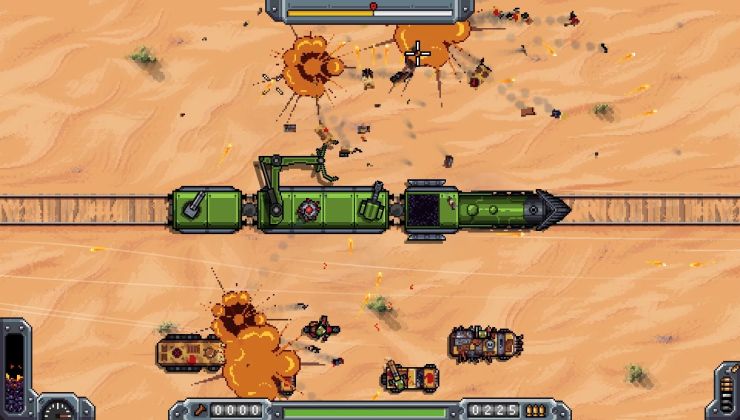
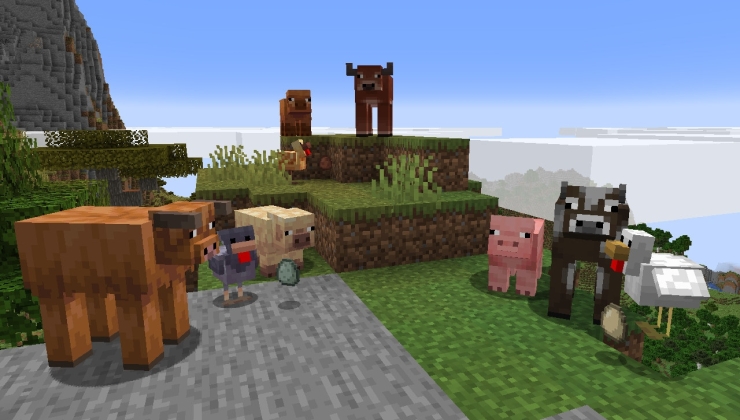
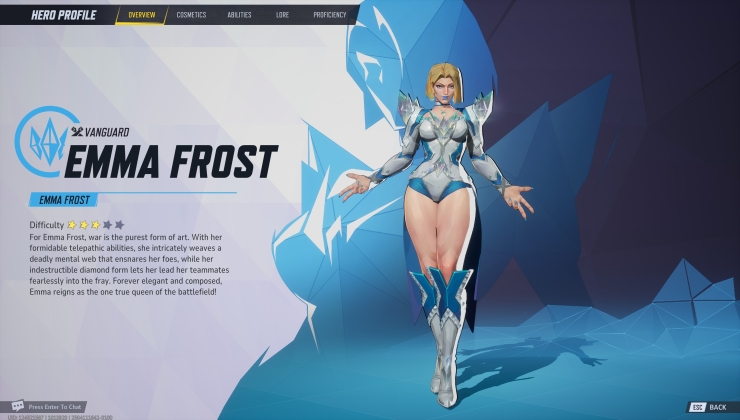
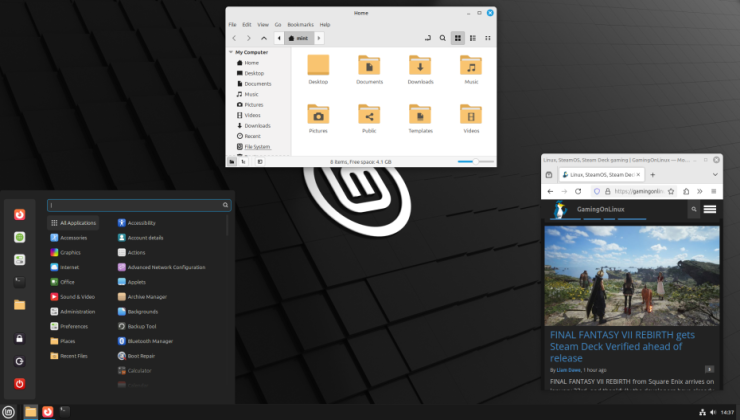






 How to set, change and reset your SteamOS / Steam Deck desktop sudo password
How to set, change and reset your SteamOS / Steam Deck desktop sudo password How to set up Decky Loader on Steam Deck / SteamOS for easy plugins
How to set up Decky Loader on Steam Deck / SteamOS for easy plugins
Currently working on Winter's Wake, a first person text adventure thing and its engine Icicle. Also making a little bee themed base builder called Hive Time :)
I do more stuff than could ever fit into a bio.
See more from me